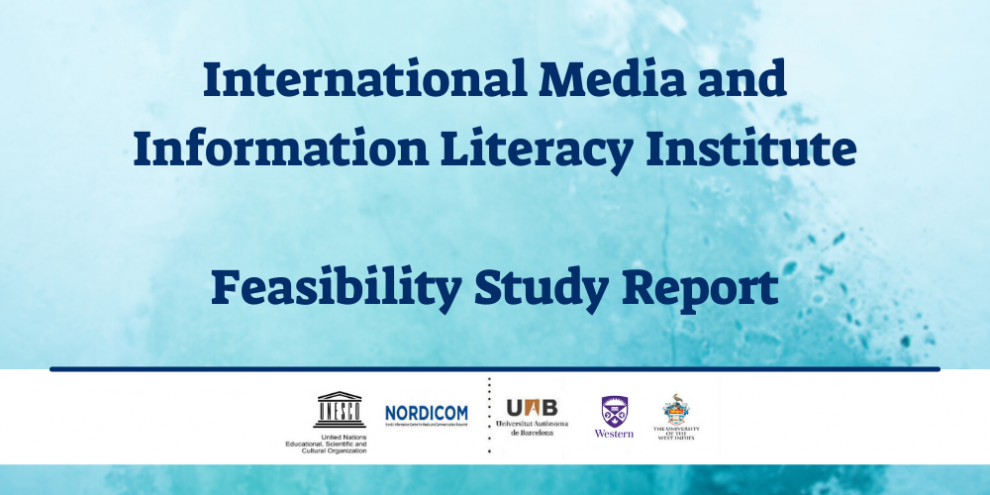The UNESCO-UNAOC UNITWIN Cooperation Programme on Media and Information Literacy and Intercultural Dialogue (MILID University Network) publishes a feasibility study report which sets the solid base for the establishment of the International Media and Information Literacy Institute. The research is a joint initiative commissioned by UNESCO and carried out by José Manuel Pérez Tornero from the Autonomous University of Barcelona (UAB), Alton Grizzle from UNESCO, Carolyn Wilson from Western University of Canada, Paulette Stewart from the University of the West Indies, and a group on international experts.
The creation of the International Media and Information Literacy Institute with the support of UNESCO, NORDICOM and other partners is a need expressed by international experts and industry companies to face the current challenges in our society. This report describes this need and defines the bases of the Institute.
The report is divided into two main sections. The first one presents the findings obtained through the survey addressed to international experts, industry companies and institutions focusing on their possible contribution to the creation of the International MIL institute and its services. This section also demonstrates the results of the benchmarking developed to identify.
The second section presents a proposal of the definition and structure of the International MIL Institute. This proposal is developed after considering the findings obtained from experts and industry companies, in addition to the lessons learnt from other similar institutions.
Summary of findings
- The proposed International Media and Information Literacy (MIL) Institute would be the first of its kind. Currently, there are not any institutes with characteristics similar to those proposed for this
one. - There is a consensus among experts, industry companies and other stakeholders about the real need of this Institute.
- Experts, industry companies and institutions expressed their interest in collaborating in the activities proposed (research, training, advocacy, capacity building, policy development).
- Industry companies are highly interested in research and training activities. Regarding the training activities, they highlighted joint degrees between universities, PhD programs, MOOC course with a certificate, workshops among others. Experts agree with the industry companies on this.
- Experts agree on the need to create more political relevance to MIL as a matter of public policy, and hence help current practitioners to gain attention and legitimise their work.
- Stakeholders and industry companies offered diverse types of potential cooperation with the Institute; sponsorship, financial support, research collaboration, dissemination of the activities in the media, participation in educational activities and workshops, advocacy, lobbying, capacity building and policy development.
- Experts proposed that the International MIL Institute acts as a knowledge hub, a repository and a place to get information on projects and aid to develop MIL initiatives in different regions. They added that the
Institute could help strengthen joint research and international comparison/assessment schemes to create “key performance indicators (KPI) to measure the progress”. - The experts propose five central units defining the principal functions of the International MIL Institute:
•• Education Unit, •• Research Unit, •• Information and Communication Unit, •• Policy and Advocacy Unit and •• Management and Funding Unit.
- Regarding the governance, it is proposed that the International MIL Institute be directly linked to UNESCO, the MILID Network and GAPMIL.
- The structure of the MIL Institute must correspond to an active network of a limited number of research centers and Universities.





